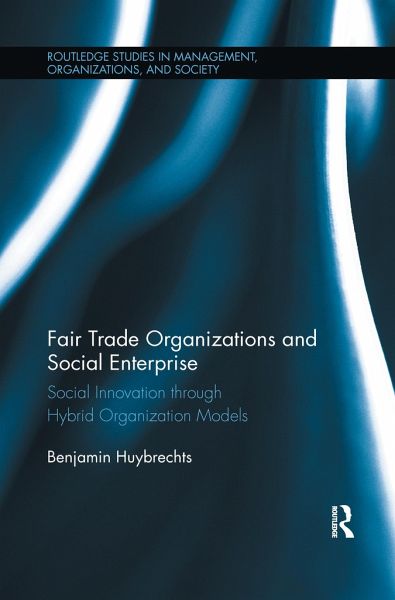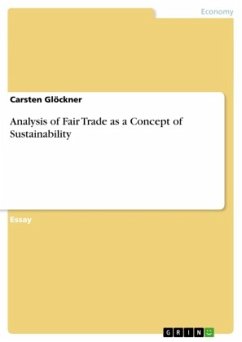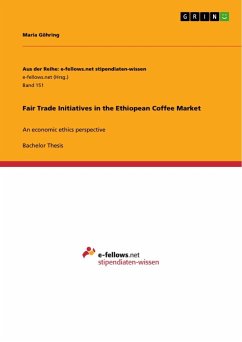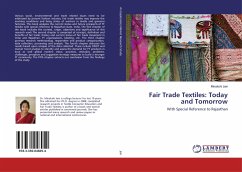
Fair Trade Organizations and Social Enterprise
Social Innovation through Hybrid Organization Models
Versandkostenfrei!
Versandfertig in 1-2 Wochen
68,99 €
inkl. MwSt.
Weitere Ausgaben:

PAYBACK Punkte
34 °P sammeln!
For several decades, social enterprises have been pioneers in the conception and implementation of a pathbreaking social innovation: Fair Trade (FT). Fair Trade Social Enterprises have created a movement which has challenged mainstream trading practices and offered development opportunities for disadvantaged producer groups in the South. Starting from a niche market aimed at convinced customers, FT has expanded and entered mainstream retailing outlets, growing in visibility and market share, while simultaneously experiencing diversification of its organization models. While pioneer Fair Trade ...
For several decades, social enterprises have been pioneers in the conception and implementation of a pathbreaking social innovation: Fair Trade (FT). Fair Trade Social Enterprises have created a movement which has challenged mainstream trading practices and offered development opportunities for disadvantaged producer groups in the South. Starting from a niche market aimed at convinced customers, FT has expanded and entered mainstream retailing outlets, growing in visibility and market share, while simultaneously experiencing diversification of its organization models. While pioneer Fair Trade Social Enterprises in the early years were largely nonprofit organizations relying on voluntary work, they have become increasingly diversified in terms of legal forms, governance models and organizational practices. These diversified models seem to reflect the hybrid nature of FT itself, through different ways of combining a commercial activity (trading of FT products), a social mission (support to producers), and an explicit or implicit political message (often expressed through education and advocacy). Based on the study of Fair Trade Social Enterprises across Europe, this book builds a typology of organization models for FT. Author Benjamin Huybrechts further examines how the different organization models combine the economic, social, and political dimensions of FT, and how they manage the possible tensions between these dimensions. Fair Trade Organizations and Social Enterprise proposes a range of theoretical approaches to interpret the diversity of Fair Trade Social Enterprises and offers concrete avenues for managing social enterprises and hybrid organizations in general.














